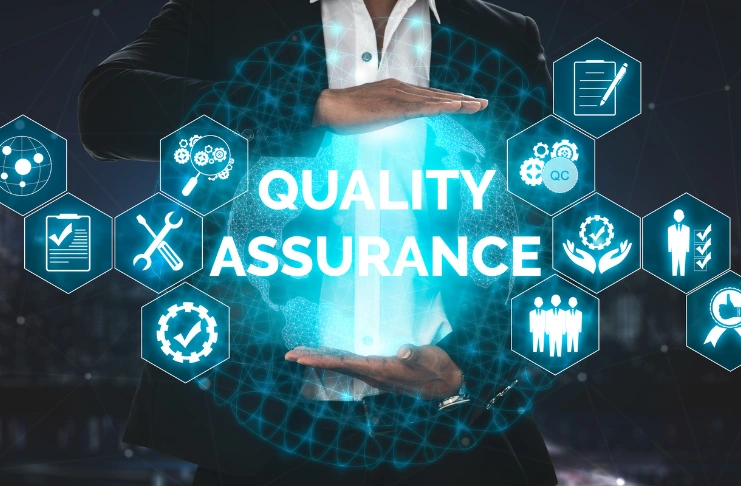Managing a restaurant successfully requires a delicate balance of strong leadership skills, operational expertise, and a commitment to customer service excellence. In today’s highly competitive and fast-paced restaurant business, understanding the essential restaurant manager do’s and don’ts is critical for steering a restaurant toward success rather than failure. These dos and don’ts serve as a foundation for effective restaurant management tips, helping leaders avoid common pitfalls while fostering a positive work environment and exceptional guest experiences.
What makes a successful restaurant manager is their ability to stay calm under pressure, communicate clearly with staff and customers, and lead by example. They must adapt quickly to unexpected challenges and continuously seek ways to improve service quality and ensure excellent customer service. Whether it’s managing inventory, scheduling shifts, or training employees, the most effective restaurant managers excel by applying proven leadership principles and a passion for hospitality.
By embracing these key principles and avoiding common mistakes outlined in the restaurant manager’s do’s and don’ts, managers can build strong teams, enhance customer satisfaction, and create memorable dining experiences that keep guests coming back.
Understanding Core Restaurant Manager Responsibilities and Tips

Every successful restaurant manager must master a comprehensive set of responsibilities that extend far beyond simply overseeing daily operations. These restaurant manager responsibilities and tips, (like back of house tasks), form the foundation of effective restaurant leadership and directly impact the establishment’s success.
The most critical responsibility involves staff management and development. Restaurant managers must hire the right people while managing payroll costs, provide comprehensive training, and create a positive work environment that reduces turnover. High employee turnover costs restaurants thousands of dollars annually and disrupts service quality, highlighting the importance of retaining skilled staff .
Financial oversight represents another crucial area where managers must excel. This includes financial management, managing food costs, labor expenses, inventory control, and profit margins. Understanding these financial metrics helps managers make informed decisions that directly impact the restaurant’s bottom line.
Customer satisfaction remains at the heart of restaurant management. Managers must ensure consistent food quality, timely service, and positive dining experiences that encourage repeat visits and positive reviews.
Essential Do’s for Restaurant Managers

Effective restaurant management, along with a positive attitude, is the backbone of a successful dining establishment.
Lead by Example
What makes a successful restaurant manager begins with leading by example in all areas of restaurant operations. Demonstrating the behaviors and work ethic you expect from your team, along with formal education, sets the standard for excellence in hospitality management. Managers should:
- Arrive early and stay late when needed to show your dedication to the restaurant’s success, inspiring your team to match your commitment.
- Actively work alongside employees during busy periods to foster teamwork and demonstrate leadership through action.
- Maintain a professional appearance and demeanor, especially when engaging with customers and staff, to set the tone for quality and professionalism throughout the restaurant.
Prioritize Staff Training and Development
Comprehensive staff training is a vital restaurant manager responsibility that ensures consistent service quality and minimizes costly errors. To build a capable team:
- Provide thorough orientation for new hires covering restaurant policies, procedures, menu details, and customer service expectations before they start working independently.
- Conduct ongoing training sessions to help existing staff improve skills, stay current on menu updates, procedures, and seasonal promotions.
- Implement cross-training to equip employees with multiple skills, enhancing operational flexibility during busy periods or unexpected absences.
Effective training programs boost employee development, increase job satisfaction, and contribute to smoother restaurant operations.
Effective Conflict Resolution Techniques
Resolving conflicts promptly prevents disruptions and maintains team harmony. To manage disputes effectively:
- Listen actively to all parties involved without bias.
- Address issues privately and professionally.
- Use mediation techniques to find win-win solutions.
- Set clear policies on acceptable behavior and enforce them consistently.
Conflict resolution skills reduce workplace stress and improve overall productivity.
Maintain Open Communication
Effective communication is key to smooth operations and a positive work culture. To strengthen team coordination:
- Hold regular staff meetings to discuss goals, address concerns, and share updates on menu changes, policies, and upcoming events impacting operations.
- Foster an open environment where employees feel safe to share questions, suggestions, or concerns without fear of retribution.
- Implement feedback systems for both customers and employees to gather insights that highlight areas for improvement and operational efficiencies.
Strong communication channels help restaurant managers resolve issues quickly and maintain high service quality, adapting to customer demand .
Focus on Food Safety and Quality Control
Enforcing food safety protocols is vital to protect customers and your restaurant’s reputation. To uphold high standards in accordance with the national restaurant association :
- Conduct regular temperature checks, follow proper food storage procedures, and adhere to all health department guidelines without compromise.
- Implement quality control systems including taste testing, visual inspections, and portion control to ensure consistent dish quality.
- Stay informed on local health regulations and maintain compliance through ongoing staff training on food safety protocols.
By prioritizing food safety, restaurant managers prevent violations, avoid costly fines, and ensure a safe dining experience for every guest.
Monitor Financial Performance
Successful restaurant managers prioritize monitoring key financial metrics as a core restaurant manager responsibility to ensure profitability and operational efficiency. You should focus on managing cash flow and monitoring key financial metrics as a core restaurant manager responsibility to ensure profitability and operational efficiency.
- Track critical numbers like food costs, labor expenses, average check size, and profit margins to identify trends and make informed decisions on pricing, staffing, and menu adjustments.
- Use inventory management systems to monitor food usage, minimize waste, and optimize ordering schedules for better cost control.
- Conduct regular financial reviews to find opportunities for cost reduction without sacrificing quality, such as renegotiating supplier contracts or adjusting portion sizes.
By managing finances proactively, and keeping accurate financial records, restaurant managers can improve profitability while maintaining high standards and customer satisfaction.
Build Strong Customer Relationships
Personal interaction is key to building customer loyalty and gathering valuable feedback. To make meaningful connections:
- Visit tables regularly, greet repeat customers by name, and promptly address any concerns with professionalism and care.
- Implement customer service recovery procedures to turn negative experiences into positive ones through quick and generous responses.
- Use customer feedback to refine your restaurant’s offerings and service quality, leveraging positive reviews and word-of-mouth as powerful, cost-effective marketing tools.
INDUSTRY INSIGHT
| According to Gitnux, 65% of customers say staff friendliness improves their dining experience. This shows how restaurant managers, by promoting attentive service, directly boost customer satisfaction and loyalty. |
Engaging directly with customers helps restaurant managers enhance satisfaction and foster lasting relationships that drive repeat business.
Strong restaurant management ensures smooth operations, happy staff, and satisfied guests—driving lasting success in the food service industry.
Critical Don’ts for Restaurant Managers
Avoiding common management mistakes is key to running a successful restaurant. From smart staff scheduling to maintaining food quality and effective marketing, restaurant managers must also check online reviews and stay proactive to ensure smooth operations, happy employees, and loyal customers.
Don’t Neglect Staff Scheduling
Effective scheduling is essential for smooth operations and boosting employee morale. To manage shifts well:
- Base schedules on historical sales data, employee availability, and ensure adequate coverage for all positions during peak hours.
- Avoid last-minute changes that disrupt employees’ personal lives and create unnecessary stress, fostering a consistent and predictable work environment.
- Never understaff during busy periods to save labor costs, as this leads to poor service, overwhelmed staff, and dissatisfied customers.
By prioritizing smart scheduling, restaurant managers can maintain high service standards and reduce turnover, contributing to overall restaurant success.
Don’t Ignore Employee Concerns
Respecting employee feedback and maintaining fairness are essential restaurant manager responsibilities that foster a positive work environment for new team members and reduce turnover. To support your team:
- Address staff concerns promptly and fairly to prevent a toxic workplace and improve productivity.
- Avoid favoritism and keep personal relationships separate from professional decisions to maintain morale and protect your restaurant’s reputation.
- Refrain from micromanaging experienced employees, as excessive oversight can undermine confidence and increase workplace tension.
By promoting fairness and open communication, restaurant managers build stronger teams and enhance overall operational success.
Don’t Ignore Burnout
Avoiding burnout is essential to maintain team well-being and keep operations running smoothly. To support your staff:
- Encourage regular breaks and reasonable shift lengths to prevent fatigue and maintain productivity.
- Promote work-life balance by offering flexible scheduling options when possible.
- Provide access to mental health resources and support programs to assist staff in managing stress.
- Recognize early signs of stress and address them proactively to prevent escalation.
Recent research by Planday shows that 69% of shift workers feel exhausted from their schedules, and 76% of managers report experiencing burnout—highlighting its widespread impact in hospitality.
By proactively managing burnout, restaurant managers can foster a healthier work environment, leading to increased employee engagement and sustained restaurant performance.
Don’t Compromise on Food Quality
Maintaining high food quality and food safety standards is a critical restaurant manager responsibility that protects your restaurant’s reputation and customer trust. To achieve this:
- Never allow substandard ingredients or poorly prepared dishes to leave the kitchen, as compromising quality can lead to negative reviews and lost business.
- Take customer complaints about food quality or service seriously, using them as opportunities to improve and show commitment to satisfaction.
- Avoid cutting corners on food safety procedures, even during busy times, to prevent health risks and avoid legal liabilities.
By upholding strict quality and safety standards, restaurant managers ensure consistent guest satisfaction and long-term success.
Don’t Overlook Marketing and Promotion
Effective marketing is a vital restaurant manager responsibility that drives customer engagement and boosts revenue. To promote your restaurant successfully:
- Use social media, local advertising, and community involvement to expand your reach and attract both new and returning customers.
- Don’t overlook online reviews—responding to feedback shows commitment to service quality and builds trust with potential guests.
- Ensure consistent branding and messaging across all platforms to strengthen your restaurant’s identity and improve recognition.
Strategic marketing and reputation management are essential tools for successful restaurant managers aiming to grow their customer base and maintain a competitive edge.
Building Effective Team Management Skills

Effective team management is essential for building a high-performing restaurant environment. To lead your team well with an effective management style :
- Develop clear job descriptions and set performance expectations so employees understand their roles and how success is measured.
- Offer internal advancement opportunities to retain top talent and reduce turnover-related training costs.
- Promote from within to show your commitment to employee development and long-term career growth.
In addition, great restaurant managers foster a positive work culture built on respect, communication, and accountability. When staff feel valued and supported, they’re more likely to stay motivated, collaborate effectively, and consistently deliver high-quality service.
Strong leadership and thoughtful team management are what make a successful restaurant manager in today’s competitive hospitality landscape.
Creating Standard Operating Procedures

Establishing standard operating procedures (SOPs) is a vital part of restaurant manager responsibilities that ensures consistency and efficiency across all shifts and teams. A manager’s job is to:
- Clearly define SOPs for all key operations including opening/closing tasks, customer service protocols, and emergency responses.
- Document all procedures in writing and conduct regular training to ensure every employee understands and follows them.
- Review and update SOPs regularly to reflect new regulations, customer feedback, or operational improvements.
Well-documented procedures are one of the top restaurant manager tips for maintaining consistent service quality and training effectiveness—key traits of what makes a successful restaurant manager.
Additionally, clearly communicated SOPs help reduce errors, improve team accountability, and support a smoother onboarding process for new hires. When every team member knows what’s expected, your restaurant operates more cohesively and delivers a reliable experience that keeps customers coming back.
Managing Customer Expectations

Setting clear customer expectations is a vital part of effective restaurant management. It helps prevent misunderstandings and boosts overall satisfaction.
- Communicate transparently about wait times, menu availability, and service limitations so customers know what to expect.
- Train staff to under-promise and over-deliver to exceed guest expectations and increase repeat visits.
- Implement systems for handling special requests, dietary needs, and regular customer preferences to personalize the experience and demonstrate excellent service.
Maintaining consistency in how expectations are managed across all shifts ensures every customer receives the same level of clarity and care—no matter when they visit. Standardizing this approach builds trust and increases the likelihood of return visits.
What makes a successful restaurant manager is the ability to anticipate and manage guest expectations proactively, delivering experiences that feel both personal and professional every time.
Inventory and Cost Control Strategies

Effective inventory management directly impacts profitability and efficiency.
- Track food usage to identify waste and optimize orders.
- Set par levels to prevent shortages and excess inventory.
- Conduct regular inventory counts for accuracy and theft prevention.
- Negotiate with suppliers for better pricing and reliable deliveries.
- Use inventory data to forecast demand and adjust for seasonal/menu changes.
Smart inventory control reduces food costs and improves restaurant profitability.
Regularly reviewing your inventory processes helps spot inefficiencies and adjust quickly to changing market conditions. Staying proactive in cost control supports sustainable growth and keeps your restaurant competitive.
Technology Integration and Efficiency

Technology simplifies operations and boosts restaurant efficiency.
- Use POS and inventory software to reduce errors and save time.
- Ensure technology integrates with existing systems for smooth workflows.
- Train staff on tech tools to maximize effectiveness.
- Leverage reservation and loyalty systems to improve customer experience.
- Regularly update technology to stay competitive and efficient.
Proper technology use enhances operational accuracy and customer satisfaction.
Embracing new technological trends like contactless payments or online ordering can further streamline operations and attract tech-savvy customers, driving repeat business.
Health and Safety Compliance

Strict health and safety practices protect customers and business reputation.
- Enforce food safety protocols like temperature checks and storage rules.
- Conduct regular safety inspections and document compliance.
- Maintain equipment to prevent hazards and violations.
- Provide ongoing staff training on health and safety.
- Follow local regulations to avoid fines or closures.
Consistent health compliance builds customer trust and safeguards operations.
A culture that prioritizes safety encourages employees to stay vigilant and report potential issues, ensuring a safer environment for everyone involved.
Crisis Management and Problem-Solving

Strict health and safety practices protect customers and business reputation.
- Enforce food safety protocols like temperature checks and storage rules.
- Conduct regular safety inspections and document compliance.
- Maintain equipment to prevent hazards and violations.
- Provide ongoing staff training on health and safety.
- Follow local regulations to avoid fines or closures.
Consistent health compliance builds customer trust and safeguards operations.
A culture that prioritizes safety encourages employees to stay vigilant and report potential issues, ensuring a safer environment for everyone involved.
Financial Analysis and Reporting

Regular financial analysis is a crucial restaurant manager responsibility that helps maintain profitability and drive informed decision-making.
- Establish consistent reporting schedules to track key metrics such as sales trends, food costs, labor percentages, and customer satisfaction scores.
- Monitor data regularly to identify patterns, seasonal fluctuations, and potential issues before they affect your business.
- Use financial insights to set realistic goals and budgets that guide operations and measure success effectively.
A 2024 case study on hotel restaurants revealed that integrating data analytics into restaurant operations led to a 6% increase in profitability across North American locations
By leveraging financial data, restaurant managers can optimize performance and ensure sustainable growth in a competitive market.
Staff Recognition and Motivation

Recognizing and rewarding excellent employee performance is a key restaurant manager responsibility that helps maintain high morale and reduce turnover in this demanding industry. Motivated employees are crucial for delivering consistent, quality service.
- Implement formal recognition programs alongside informal acknowledgments to celebrate outstanding work and show appreciation regularly.
- Create incentive programs tied to specific goals like sales targets, customer satisfaction, or safety records to motivate employees to take ownership and exceed expectations.
- Publicly celebrate team and individual successes to reinforce positive behavior and foster a culture of excellence without always relying on monetary rewards.
By effectively recognizing employees, restaurant managers build stronger, more committed teams—an essential element of what makes a successful restaurant manager.
Continuous Learning and Professional Development

The restaurant industry is constantly evolving due to shifting consumer preferences, new regulations, and emerging technologies. Staying updated is a key restaurant manager responsibility for long-term success.
- Attend industry conferences, workshops, and training programs to learn new management techniques and network with other professionals.
- Engage in continuing education to bring fresh ideas and proven strategies to your restaurant.
- Encourage your management team to pursue professional development, strengthening leadership and preparing them for greater roles.
Committing to ongoing learning ensures restaurant managers and their teams stay adaptable and competitive in a rapidly changing market.
Quality Assurance and Customer Feedback

Implementing comprehensive quality assurance programs helps maintain consistent food quality and service standards across all shifts and seasons. Regular monitoring and evaluation help identify areas for improvement before they affect customer satisfaction.
Create systematic approaches for collecting and analyzing customer feedback through surveys, online reviews, and direct communication. Customer input provides valuable insights into areas where your restaurant excels and where improvements are needed.
Use quality assurance data to make informed decisions about menu changes, service procedures, and staff training needs. Data-driven improvements are more likely to produce measurable results than changes based solely on intuition or assumptions.
Seasonal Planning and Adaptation

Adapting to seasonal changes is a crucial part of effective restaurant management. Seasonal planning enables managers to optimize operations within the dining room and boost profitability year-round.
- Use historical sales data to identify seasonal trends and adjust restaurant manager responsibilities like staffing, inventory, and marketing accordingly.
- Plan staffing carefully to avoid understaffing during peak times and overstaffing during slow periods, ensuring smooth service and cost control.
- Create seasonal menu items and promotions that align with customer preferences and ingredient availability, helping to attract new guests and increase repeat visits.
By mastering these seasonal strategies, restaurant managers can maintain consistent performance and drive growth throughout the year.
Building Community Relationships

Building strong community connections is a vital part of successful restaurant management. These relationships boost your restaurant’s reputation and foster customer loyalty.
- Participate in local events and support community causes to increase your restaurant’s visibility and engagement.
- Develop partnerships with local suppliers for fresher ingredients, competitive pricing, and reliable service—key restaurant manager responsibilities that enhance quality and appeal.
- Collaborate with local media and food bloggers to generate positive publicity and leverage word-of-mouth marketing.
By actively nurturing these community ties, you strengthen your restaurant’s presence and create lasting value that supports growth and success through effective marketing campaigns .
Conclusion
As highlighted in the introduction, understanding and implementing these essential restaurant manager do’s and don’ts lays the foundation for successful restaurant operations. The blend of strong leadership, operational expertise, and unwavering commitment to excellence is what truly distinguishes great managers from average ones in today’s competitive hospitality industry.
Restaurant management is a continuous learning journey that demands adaptability to evolving customer preferences, shifting industry trends, and unforeseen challenges. Success in this role comes from balancing a wide range of priorities—staff management, cost control, service quality—without ever losing sight of the core goal: creating memorable dining experiences that encourage repeat visits.
By following these proven restaurant manager dos and don’ts and avoiding common pitfalls, restaurant staff will build the essential skills and knowledge that define what makes a successful restaurant business, all because of the the manager in today’s fast-evolving market.
Frequently Asked Questions
1. What not to do as a restaurant manager?
A restaurant manager should avoid micromanaging staff, ignoring their team’s concerns, or overlooking valuable guest feedback.
2. How to be a good manager in a restaurant?
To be a good restaurant manager, it’s essential to lead effectively, communicate clearly with both staff and guests, and always prioritize the customer experience.
3. What is the daily routine of a restaurant manager?
A restaurant manager’s daily routine includes managing staff schedules, overseeing inventory and supply levels, ensuring smooth service, and handling day-to-day operations to maintain standards.
4. What is the hardest part of being a restaurant manager?
The hardest part of being a restaurant manager is balancing high stress levels, multitasking between various responsibilities, and managing diverse team dynamics.
5. What are the duties and responsibilities of a restaurant manager?
A restaurant manager’s duties include staffing, controlling costs, ensuring excellent service standards, and complying with all health and safety regulations.
6. What does a restaurant manager do on a daily basis?
On a daily basis, a restaurant manager oversees shifts, resolves operational issues, manages staff performance, and ensures a consistent and high-quality dining experience for guests.
7. What are the duties and responsibilities of a manager?
A manager is responsible for leading teams, planning and organizing schedules, monitoring performance, and fostering a productive and positive work environment.
8. What are the qualities of a good restaurant manager?
A good restaurant manager possesses strong leadership skills, adaptability to changing situations, excellent communication, and a genuine ability to connect with and motivate staff and guests.
9. What makes the best restaurant manager?
The best restaurant manager is someone who balances operational demands with a focus on team development and guest satisfaction, creating an environment where both staff and customers thrive.
10. What is your greatest strength as a restaurant manager?
My greatest strength as a restaurant manager is the ability to lead teams effectively while consistently delivering exceptional guest experiences.





